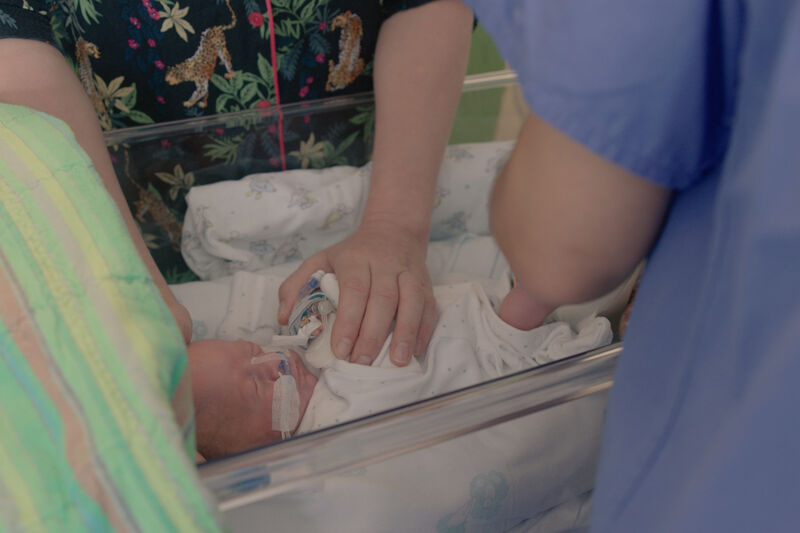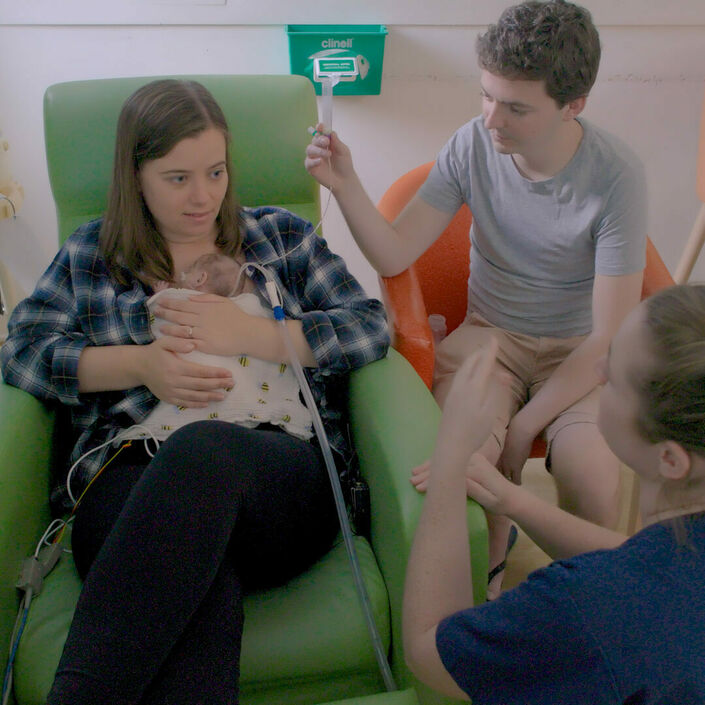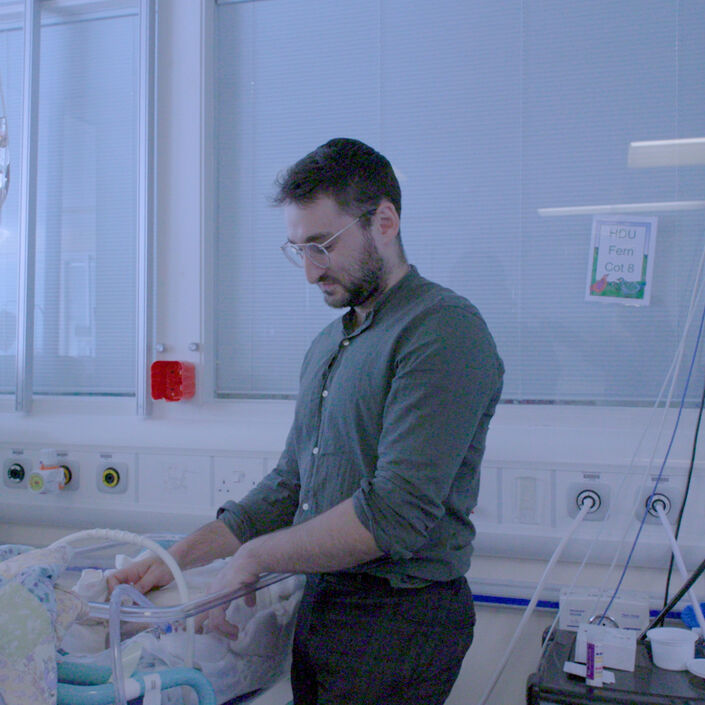Babies admitted to neonatal care undergo many necessary painful procedures in their first days and weeks of life. While evidence in recent years has demonstrated that parents can play a positive role in comforting their baby during these painful procedures, practice in the UK lags behind.
A Bliss survey in early 2022 showed that 87% of healthcare professionals thought that parental touch was an effective treatment to help manage painful procedures for babies, but the vast majority (86%) of parents were not told that their touch could comfort their baby through painful procedures.
New information launched today by Bliss is specifically designed to help parents feel more confident about the role they can play in comforting their baby in neonatal care. Informed by new research from the University of Oxford, these resources for families and health professionals set out in detail the many ways that parents can touch and comfort babies of all gestations during painful procedures on the neonatal unit, including skin-to-skin care.
For many years, researchers at the University of Oxford have sought to improve our understanding of premature babies’ experiences of pain. In 2019, Bliss funded the University to undertake research on both how best to measure the effects of essential but invasive procedures – looking at factors such as breathing, heart rate, oxygen saturation, facial expression and brain activity – and also how best to manage this pain.
This research has provided new evidence of the positive impact on parents of being invited to be actively involved in comforting their baby during a painful procedure, with the majority of parents reporting positive emotions – such as feeling useful and reassured – and an overall decrease in parental anxiety after their involvement.
One parent, Yasmeen, discussed the importance of being involved in her baby’s care, such as holding her while she had blood transfusions and before CT scans, and being by her side during procedures. She said: “I wanted to do that for me because I wanted to be her mum. I didn’t want to feel like any less of a mum just because my daughter was in hospital or my daughter had a procedure, or that she stayed somewhere else overnight.”
Caroline Lee-Davey, Chief Executive of Bliss, said: “We are thrilled to have worked alongside Professor Rebeccah Slater and an amazing team of researchers at the University of Oxford to further our understanding on the importance of parental involvement in their babies’ neonatal care.
“We know that babies have the best chance of survival and quality of life when their parents are empowered to be partners in their care but, sadly, we hear all too often that parents are not informed about their babies’ procedures or the role that they can have in comforting their baby.
“The outcomes of this research have directly shaped a new suite of Bliss information for parents and healthcare professionals which will help to validate what families often instinctively know to be true – that no matter how unexpected or strange the neonatal environment can feel, they are still their baby’s parent and they have a vital role to play in their comfort and care.”
Additional funding from the Wellcome Trust enabled Bliss to develop these valuable resources for families, including new information, video content filmed at John Radcliffe Hospital’s neonatal unit, a forthcoming Instagram Q&A, as well as translated flyers for neonatal units and a webinar for healthcare professionals on how to support parents to be involved in their babies’ procedures. These resources were created in collaboration with parents and healthcare professionals and included a listening event with the Raham Project where four mums shared their neonatal stories.
The impact of this research demonstrates how universities, hospitals and national charities can work together to deliver research that is meaningful to families and their babies.
Rebeccah Slater, Professor of Paediatric Neuroscience at University of Oxford, said: “Working so closely with Bliss has placed families at the heart of all the research we do, and has directly improved the quality of our work. We will continue to find new ways to support parents and their babies when painful procedures form an essential component of neonatal care.”
Our parental touch information and resources can be found here


